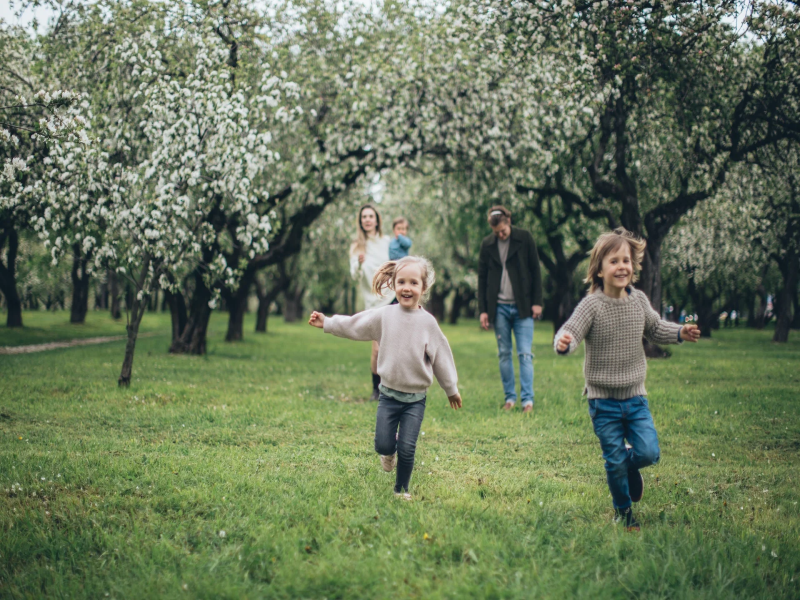Introduction
Toddlerhood. It is a time of great development, intensive exploration, and, well…the temper tantrums. Sound familiar? If you’ve ever seen your kid go from a cheerful adventurer to an angry little snowball in a matter of seconds, you understand me. As any parent knows, frustration is a completely natural part of this developmental stage, though it can often pose more of a problem for the child and the parent.
Mindfulness is where it is at here. Through practicing these mindful tips on how to help your toddler to overcome frustration, you are helping him or she to develop good emotional intelligence that is useful for their learning throughout their development stages. And the best part? These strategies also benefit you making the parent-child relationship to become more positive and constructive. In this guide, we’ll also first discuss the causes of toddler frustration and then take a look at the effective, evidence-based mindful strategies that may support you and your toddler.

Understanding Toddler Frustration
But let’s first kind of set the stage, so to speak, on why toddlers experience frustration to begin with. This understanding provides a starting point for later empathy and also helping the guide them through these storms of emotions.
Why Frustration Occurs In Toddlers?
Imagine this: It’s a new skill you are trying to acquire, you are passionate to do it to the best and you are seeing improvements but your body and your mind are not fully compliant. No matter how hard you want to make it to the top, it just doesn’t happen; you fail. How would you feel? Probably pretty frustrated! This is the daily experience all toddlers go through.
Here’s a breakdown of the key reasons behind toddler frustration:
- Developmental Stage: Toddlerhood is a stage when many changes take place. They are aspiring to grow up, determined to do things by themselves, but often their skills fail to meet their desire. Some cases can be long and complicated, the distance between the desire and the capability can cause a lot of frustration.
- Limited Communication Skills: Children at these ages are still in process of developing their ability to communicate needs or express certain emotions. Think about having the dire need to get what you want but being unable to say the words in order to get it! This makes the child develop communication barrier that will turn into frustration and eventually develop tantrums.
- Lack of Control: Prejunctional toddlers are very active through the exploration movement, however, they meet limitations at times. Criticizing the child and prohibiting contact with a fragile thing or leaving the playground, one can cause fear of the child’s own helplessness and pushbutton.
Common triggers of frustration in toddlers’ Common causes of frustration in toddlers Common causes of stress and anger in toddlers
While every toddler is unique, some common triggers tend to spark frustration:
- Hunger and Tiredness: Even kids are not immune to the so called ‘hangry’-ness that pervades adult culture. Toddlers have tiny stomach that could accommodate little food and they spend a lot of energy in activities that they engage in. When they cannot achieve their biological needs for food or rest they are not able to handle their frustration.
- Transitions: It probably is hard for children of such tender age to let one activity transition to another because they love discipline and order. This makes them reluctant and they can even fall pray to unexpected changes since they will result to resistance.
- Wanting Something They Can’t Have: The toy in the store that can be grabbed, the cookie jar which should be out of reach – children, especially toddlers, love things they shouldn’t get close to or touch. When their desire are not granted, anger (and sometimes, tantrums worthy of classic Greek plays) may happen.
- Difficulty with Tasks: As much as a toddler wants to put on his or her shoes or build a tower that collapses every time maybe this can cause frustration to the child in the process of learning.
Realizing those causes can assist you avoid or perhaps ease several bothersome scenarios.
What is Mindfulness?
Having a general understanding of toddle frustration that is why we have to turn to mindfulness discussion. Mindfulness can be best described as the deliberate act of being aware of one’s thoughts and feelings at any given time, and without bias. It is about observing thoughts, feelings and sensations without getting lost in these thought-feeling patterns.
You may think that this has something to do with mysticism, but in fact, mindfulness can be very helpful in parenting toddlers. Sophisticated for parents, mindfulness allows learning the lack of attention and shrugging off stress, and experiencing tough situations in a calm and wise manner. At the toddler age, it can enhance their emotional management, enhance their attention and develop their psychological self-presentation.
It is helpful to consider mindfulness as a kind of savant ability that assists in not losing your ability to live sanely in the midst of the cacophony associated with toddler-hood. When you are conscious of yourself then you are not likely to act immaturely whenever your toddler cares. However, we can stand back, look at it more dispassionately, and respond to the situation in a manner that would be healthy for you and your child.
Mindful Strategies to Guide Your Toddler Through Frustration
With an understanding of toddler frustration and the power of mindfulness we can now turn to what you can do right now. Use of these techniques will assist you in facing such difficult times with less stress and enable your toddler to master the competency on emotional regulation.
Stay Calm and Present
It’s easy to get caught up in the whirlwind of your toddler’s emotions, especially during a full-blown tantrum. But remember, your child takes cues from you. If you react with anger or frustration, it’s likely to escalate the situation.
Here’s how to stay calm and present:
- Take a Deep Breath: When you feel your own frustration rising, pause and take a few deep breaths. This simple act can help shift you from a reactive state to a more responsive one.
- Observe Your Thoughts and Feelings: Notice what’s happening within you. Are you feeling overwhelmed, irritated, or perhaps even triggered by your child’s behavior? Acknowledging your own emotions allows you to manage them more effectively.
- Focus on Your Body: Bring your attention to your physical sensations. Feel your feet grounded on the floor, your breath moving in and out. This helps anchor you in the present moment and prevent you from getting swept away by your toddler’s emotions.
By staying calm and present, you create a safe and supportive space for your toddler to express their feelings and learn to regulate them.
Validate Your Toddler’s Feelings
Imagine feeling upset about something and having someone dismiss your feelings or tell you to “just stop crying.” It probably wouldn’t make you feel any better, right? The same applies to toddlers.
Validating your toddler’s feelings means acknowledging and accepting their emotions without judgment. It doesn’t mean you agree with their behavior or give in to their demands. It simply means you recognize and respect their emotional experience.
Here are some examples of validating phrases:
- “I see you’re feeling frustrated right now.”
- “It’s okay to be angry. Everyone feels angry sometimes.”
- “I understand that you’re sad because you can’t have the toy.”
When you validate your toddler’s feelings, you send a powerful message: “Your emotions matter. You are seen and heard.” This helps them feel understood and supported, even in the midst of their frustration.
Offer Choices and Encourage Problem-Solving
Toddlers are naturally driven to assert their independence. Giving them age-appropriate choices can empower them and reduce feelings of frustration.
Instead of dictating every aspect of their day, offer choices whenever possible. For example:
- “Do you want to wear the red shirt or the blue shirt?”
- “Would you like to play with blocks or read a book?”
- “Do you want to walk to the car or be carried?”
Offering choices not only gives toddlers a sense of control but also helps them develop problem-solving skills. They learn to consider different options and make decisions, which can be incredibly empowering.
Create a Calm-Down Space
Having a designated “calm-down space” can be a game-changer for managing toddler frustration. This is a safe and comfortable area where your toddler can go to de-escalate when they’re feeling overwhelmed.
Here are some ideas for creating a calm-down space:
- Soft Furnishings: Include soft blankets, pillows, and a comfortable rug.
- Calming Toys: Provide sensory toys, books, or stuffed animals.
- Visual Aids: Hang calming images or posters.
- Quiet Activities: Keep calming activities like puzzles or coloring books nearby.
The calm-down space should be a positive and inviting place, not a punishment area. Encourage your toddler to use the space when they feel frustrated, and model calm behavior yourself by taking deep breaths or reading a book in the space together.
Practice Mindful Breathing Exercises Together
Breathing exercises are a fantastic way to regulate emotions for both children and adults. Introduce simple breathing techniques that you can practice together with your toddler.
Here are a few ideas:
- Bubble Breathing: Blow bubbles together and encourage your toddler to take deep breaths in and out.
- Belly Breathing: Lie down together and place a stuffed animal on your bellies. Watch the animal rise and fall as you breathe in and out.
- Flower and Candle Breathing: Pretend to smell a flower (breathe in) and blow out a candle (breathe out).
These exercises can help your toddler calm down during moments of frustration and teach them valuable coping skills for managing their emotions.
Use Mindful Communication
The way you communicate with your toddler during moments of frustration can significantly impact their ability to regulate their emotions. Use a calm and gentle tone of voice, even when you’re feeling stressed.
Here are some examples of mindful communication phrases:
- “I’m here for you.”
- “Let’s take a deep breath together.”
- “I can see that you’re really upset. Can you tell me what’s wrong?”
- “It’s okay to feel angry, but it’s not okay to hit.”
Through tone of voice, you are teaching your toddler about healthy ways in which they need to channel their feelings and frustrations.

Preventing Frustration in Toddlers
Of course, it is not possible to avoid frustrations all together but you need to be pro-active and try to avoid frustrations and make sure the environment you give your toddler is friendly enough.
Establish Consistent Routines
Children’s sense of security come from knowing what to expect next when in early childhood mean toddlers and toddlers love routines. Routine helps a child feel safe and cuts out anxiety-related outbursts that lead to a meltdown.
Sustained consistent patterns of day-to-day schedules such as meal time, nap time and bed time and other activities. This way your toddler is prepared in advance for something new and there is little chance of upsetting your child because of the change of scenarios.
Organize for Risk and Challenge to be Available
A toddler needs to play and playing is good for their development. It gives them chance to grow, discover and share with others as well.
Organically engage your toddler in sufficient structured and unstructured play activities that may take place in an indoor environment as well as the outdoors environment. This enables the child to apply his or her creativity, learn better ways to solve a problem and exhaust energy that would have otherwise cause most children to get frustrated.
Set Realistic Expectations
Parental frustration has more to do with setting the bar too high with our children in mind. It is important to understand that anatomically toddlers are still babies and are in the process of learning. They’re not little people and they are not going to do what one might expect or wish they would.
When communication is difficult, it pays to be realistic with your expectations depending on your toddler’s age. Of course, congratulate them when they are able to do something new, give them moral support when the going gets tough and do not forget that this is a long process.
When to Seek Professional Help
All the outlined strategies in this blog post are quite effective in handling toddler frustration but one can seek professional help where necessary.
Consider reaching out to a child psychologist or therapist if:
- Tantrums are frequent and intense: If your toddler’s tantrums occur frequently at least several times a day, for a long time, or involve aggression, it is better to consult with a specialist.
- You’re concerned about your child’s development: If you have any concerns about your toddler emotional, social or behavior developmental milestones, then a professional can offer an assessment and intervention.
- You’re feeling overwhelmed: Playing with a toddler needs care and attention, so you may need assistance as much as they need yours in parenting. If you get stressed, anxious or burnt out there’s a therapist with helpful words.
Important to note is that getting help from a professional is a strength not a weakness. It goes a long way to prove that you are willing to do all it takes to ensure your child and your family gets the best support they can get.

Conclusion
Being a constant companion to an impatient toddler can sometimes be an all rollercoaster experience sometimes. But of course you don’t have to worry, you’re not the only one out there! In fact, by employing mindful approaches, those actually problematic situations could be indeed constructively framed as a change for positive development and new communication experience.
Remember these key takeaways:
- Stay Calm and Present: This is an instructive truth, for your toddler is emulating you. When you manage your own feelings, you make your child’s environment peaceful, and this will help your child regulate his or her moods.
- Validate Their Feelings: If your toddler feels upset, let them know it is okay to feel that way without trying to reassure them otherwise. This makes them understand that someone really cares about them.
- Offer Choices and Encourage Problem-Solving: Help your toddler change some aspect of their environment by offering choices and chances to think through problems to them.
- Create a Calm-Down Space: Make it clear where your child can sit down and calm down when he feels too much stress.
- Practice Mindful Breathing: Introduce breathe control techniques so as to curb outbursts and help to cool tempers.
- Use Mindful Communication: Be patient and avoid becoming angry with the toddler because you may end up correcting him or her in anger.
When these mindful strategies are practiced routinely, then you will be able to lead your toddler away from frustration much easier and with more confidence. Besides teaching them how to regulate their emotions you are also going to deepen the parent-child relationship.
So it is always important to remember that, parenting is a process and not an event. Nobody said parenting is perfect; be gentle to yourself, acknowledge the milestones and remember that parenting toddlers is one wild crazy ride! You’ve got this!
References
- Zero to Three: A valuable resource for understanding child development and parenting.
- Mindful.org: A comprehensive website with articles and resources on mindfulness.
- The Whole-Brain Child [invalid URL removed]: A book by Daniel J. Siegel and Tina Payne Bryson that offers insights into child development and practical parenting strategies.
- Raising Good Humans [invalid URL removed]: A book by Hunter Clarke-Fields that explores mindful parenting techniques.







